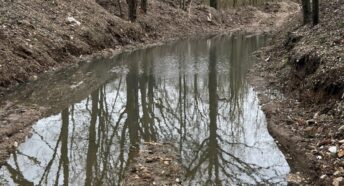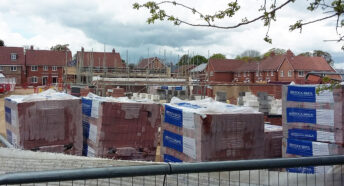London Green Belt Council welcomes proposed countryside protections but fears for local democracy

The London Green Belt Council, of which CPRE Kent is an associate member, has described government proposals for reform of the planning system as “a mixed bag”.
It applauds the provision of some countryside protection in the Green Belt and Areas of Outstanding Natural Beauty but is disheartened by the threat to local democracy and restriction of community involvement in the planning process.
Responding to today’s (Thursday, August 6) publication of Planning for the Future by the Ministry of Housing, Communities and Local Government (MHCLG), Andy Smith, secretary of the London Green Belt Council, said: “We welcome the government’s pledge to protect Green Belt and AONB countryside from development, but we are disappointed that ministers have missed this opportunity to strengthen local democracy and have instead opted for policies that circumvent local communities.
“We are also concerned about potential reductions in building standards resulting from the government’s intention to ‘fast-track’ developments at the expense of quality and the environment.”
The LGBC will be participating in the government’s consultation on the White Paper and is urging communities throughout London and the South East to “have their say, and to bring pressure to bear on ministers to ‘think again’ about planning”.
Mr Smith adds: “The priority for any reforms to the planning system in England should be to increase public participation and to improve the quality and environmental sustainability of new developments.
“While the White Paper’s reaffirmation of the important role of the Green Belt is very welcome, there is a danger that the current proposals from ministers will lead to a massive reduction in local democracy and accountability, which will harm the environment and will benefit only the developers and their profits.”
- For more on Planning for the Future, see here
- A number of important documents have yet to emerge. For example, a rigorous transport plan and a finalised air-quality assessment. The latter is critical given that allocations at Teynham will feed extra traffic into AQMAs.
- There seems to be no coherent plan for infrastructure delivery – a key component of the plan given the allocations being proposed near the already crowded Junction 7.
- There seems to have been little or no cooperation with neighbouring boroughs or even parish councils within Swale itself.
The removal of a second consultation might have been understandable if this final version of the plan were similar to that being talked about at the beginning of the consultation process. It is, however, radically different in the following ways:
- There has been a major shift in the balance of housing allocations, away from the west of the borough over to the east, especially around the historic town of Faversham. This is a move that raises many concerns.
- A new large allocation, with accompanying A2 bypass, has appeared around Teynham and Lynsted, to which we are objecting.
- Housing allocations in the AONB around Neames Forstal that were judged “unsuitable” by the council’s own officers have now appeared as part of the housing numbers.
- Most of the housing allocations being proposed are on greenfield sites, many of them on Grade 1 agricultural land – a point to which we are strongly objecting.
Concerns about the rush to submit the plan
The haste with which the plan is being prepared is especially worrying given the concentration of housing in Faversham. If the town is to take a large amount of new housing, it is imperative that the policies concerning the area are carefully worked out to preserve, as far as possible, the unique nature of the town. The rush to submit the plan is likely to prove detrimental.
As Swale does not have a five-year land housing supply, it is open to speculative development proposals, many of which would run counter to the ideas contained in the current plan. Some are already appearing. This is a common situation, and one that, doubtless, is a reason behind Swale’s haste.
Our overriding fear, however, is that this emphasis on haste is ultimately going to prove counterproductive. This is because it is our view that the plan, in its current form, is unlikely to pass independent examination. We are urging Swale to listen to and act upon the comments being made about the plan and to return the plan to the council with appropriate modifications before submitting it to the Secretary of State.
Essentially, this means treating the current consultation not as the final one but as the ‘lost’ second consultation.
The consultation ends on Friday 30 April and we strongly urge residents to make their opinions known if they have not already done so.
Further information








